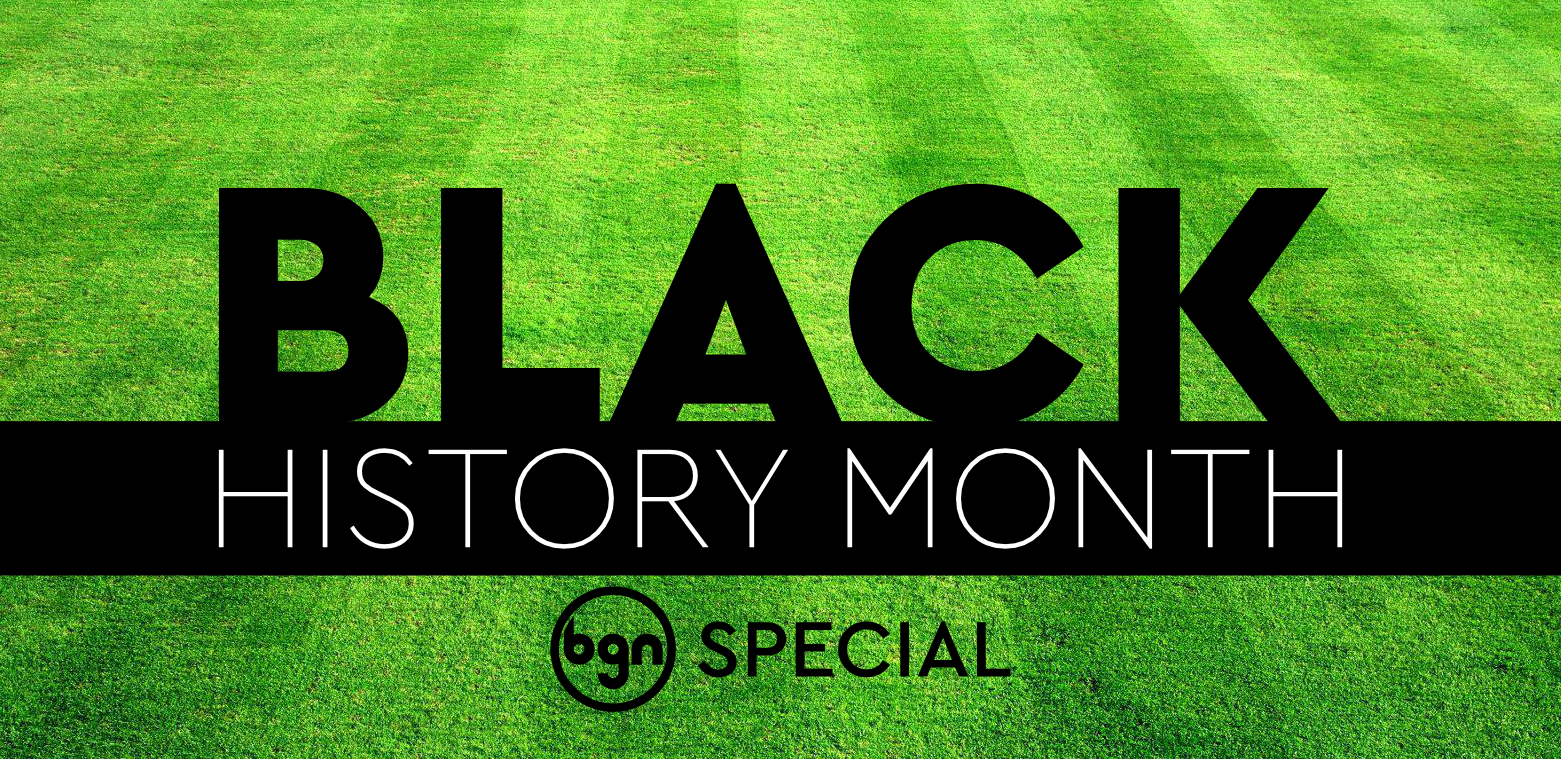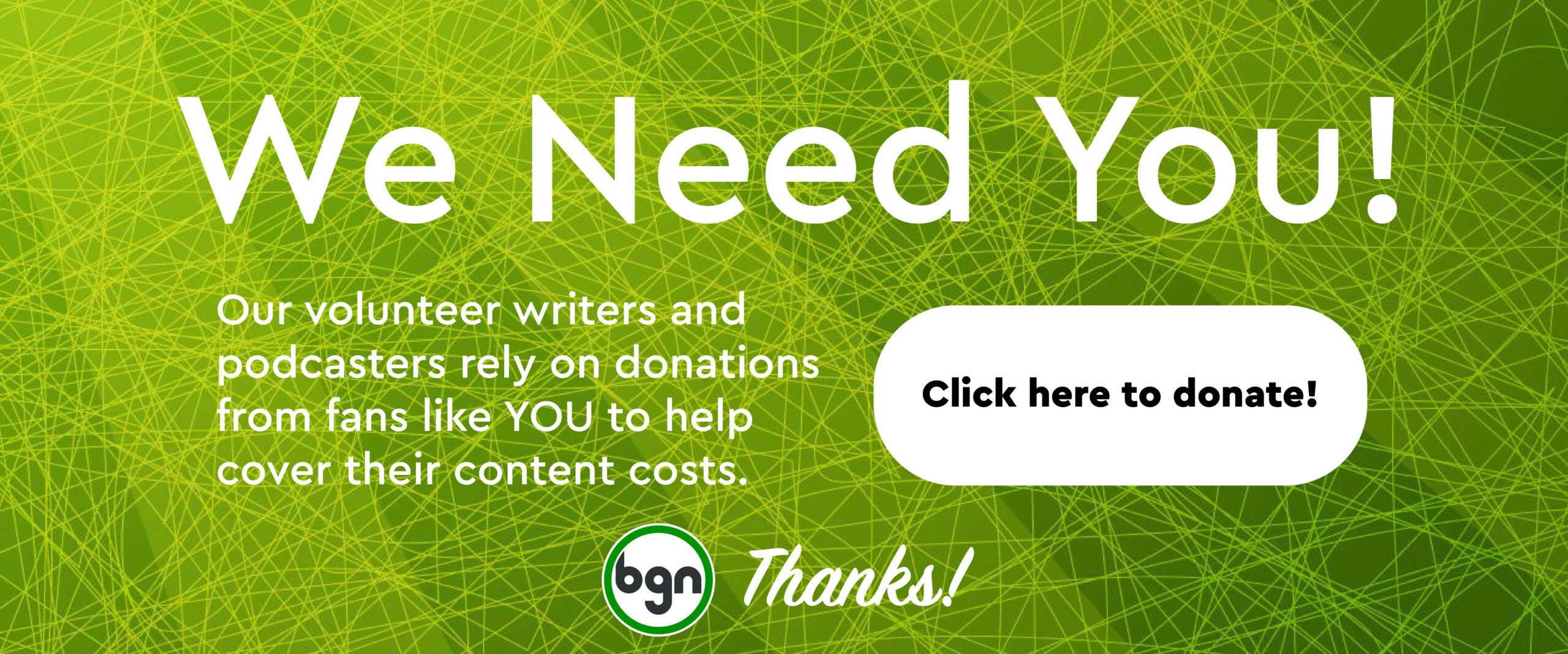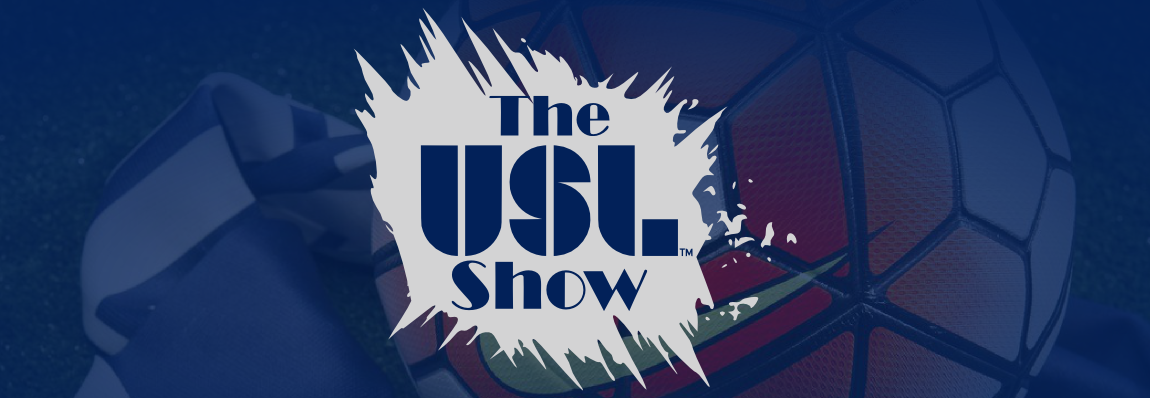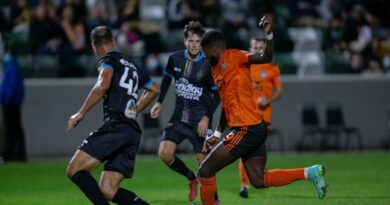A Black History Month BGN Special
A roundtable discussion about race with four African American stars in the USL Championship.
As we arrive in the final days of 2019’s Black History Month, I was lucky enough to catch up with four young, African American players currently excelling in the USL to discuss the relationship between the African American community and soccer. Those gentlemen were Charlotte Independence’s Hugh Roberts, Louisville City’s George Davis IV, Pittsburgh Riverhounds’ Tobi Adewole, and San Antonio FC’s Kai Greene.
BGN: In recent years, Hope Solo has described soccer as a “rich white kid sport”. As an African American man playing this sport professionally, what is your first reaction to that statement and if it rings true, how does soccer in America fix that?
George Davis IV: The statement of soccer being a “rich white kid sport” in America gives me a variety of emotions. Growing up playing, I was definitely a minority within my teams and amongst my competition. Even amongst my peers in school and in the neighborhood, I was always questioned why I played soccer or how many black kids were on my team. I can remember counting how many other black kids were on other teams or at the tryouts. I don’t know if this was for comfort or clarity that other black kids played soccer too. Fortunately, I grew up and played with a few other black kids on my teams who became very close friends. And I think one of the main reasons for that is how few of us there were playing. I feel like the sport has crossed those boundaries at this point in American soccer. When I look around the leagues in America and amongst the youth, I see a very diverse group of players. I think the challenge now for American soccer is to expand the game beyond financial means. Giving more opportunity and finding ways to incorporate kids into the game, regardless of what they can afford, will ultimately create a more diverse pool of players. I hope the stereotype of a “rich white kid sport” continues to fade away and the players of this new generation cannot relate to that statement.
Hugh Roberts: My first reaction to her statement was that I see exactly where she is coming from. I have always believed that the pay-to-play system has hindered us with growth in America. The best athletes across the world come from poor beginnings but were able to still get opportunities because of their talent and succeeded. Yes, unfortunately, because of how expensive it is to play soccer in this country, the majority of the players are white. Not saying that is an issue but America is very diverse and some of the best talents in all sports come from minorities when given an equal opportunity. I believe there needs to be a system in place. In almost every major sport this is the case, from a young age, kids from struggling areas are given free opportunities when talented enough. I grew up playing basketball in this system so I was able to witness this first hand.
Kai Greene: I’d love to see the exact context she said this in, but if I take this literally, I disagree. Blacks, as well as Latinos, are increasing their numbers in the sport and making a big impact. Look at who are some of the top players in the league are and tell me if this is a “Rich White Kid Sport”.
Tobi Adewole: Lemme rap to you real quick. First and foremost, I completely agree with Hope Solo. When you think of football abroad the first thing that comes to mind is the convenience to play. Everyone plays football (soccer), from the slums to the suburbs. For the most part, playing in an academy abroad is free. But think about it! How can a family afford to send their kid(s) to an academy when they can barely making ends meet? Many families send their kids to academies as “a way out”. Because America has so many sports to offer at the youth level, and amongst those (football) soccer not being a top sport, it is seen as just an extracurricular activity/luxury sport. Growing up in the American football system was difficult because being on a team costs money. Not only are you paying to be a part of the team, you are also paying for individual items such as cleats, guards, etc. At this stage in my career, I’ve had the pleasure of going to inner-city elementary and middle schools to tell the kids about the game that changed my life, soccer. Most of the kids I’ve been introduced to see sports like American football or basketball as a form of social mobility…a way to make it out of their current situation. Many of the kids laughed when I even brought up soccer. “That’s a white boy sport” “black people play soccer?” But I digress…How does America fix this “problem”? By making the sport more inclusive and affordable. The game provided a lot of opportunities for me and kept me out of A LOT of trouble. I was blessed to play, pretty much for free, throughout my youth career, play at a great university, and now living my dream as a professional athlete. I was lucky though…not many kids today can say the same. A lot of communities are alienated from the beautiful game and any opportunity it provides.
BGN: Growing up, who were some of the African American soccer players you admired? Do you think a young megastar like Kylian Mbappe will help attract young black men and women into the sport?
George: When I was growing up, the African American players that come to mind are Eddie Pope and Cobi Jones. These were the guys in USA kits that I could mostly relate to. I do believe players like Mbappe can help attract these young black men and women to the sport. The same way Pele has influenced players all over the world. A clear example of this is George Weah for me. From a world perspective, I thought it was amazing that an African man was considered one of the best footballers in the world. I’m sure I was not the only young man influenced by these megastars. I believe it holds even more weight today with the amount of publicity and strength of social media. We truly have access to these players on and off the field and I hope it attracts many more black men and women to the sport from all walks of life.
Hugh: Growing up for me, Thierry Henry, Didier Drogba, Patrick Vieira, and Samuel Eto’o were some of my favorite player black soccer players who I admired at the time. I definitely think a young megastar like Mbappe will help attract more black men and women into this sport worldwide but I think its more important that we have an American megastar so more American kids can believe and see one of their own make it. If they believe there is an outlet and they can reach that stardom as well, it will attract more players. Right now, African American kids are attracted to other major sports like basketball and football but soccer in America has never been on that same platform and it shows.
Kai: I never had any soccer players I really admired growing up because I didn’t watch soccer, I only watched basketball. But, I definitely feel Mbappe will help attract young black men and women to the sport. To do what he has done at such a young is remarkable and inspiring.
Tobi: Growing up there were no African AMERICAN soccer players I admired. It’s sad to say, but all my idols were international ballers. I love what young black men and women are doing for the game, and how much they are excelling. Personally, I have to give the most respect to black players that may be the only black person on their team in countries where racism is still alive and blatant. It takes a lot to leave your country, go abroad and have the weight of the country on your shoulder. These players give the youth hope and dream of playing anywhere their heart desires. Seeing anyone being passionate about their dreams is inspiring, so imagine what’s it like seeing someone who “looks likes you”.
BGN: Recently, racism in soccer overseas has become a topic of conversation, despite the racism dating back to the beginning of the sport. How much racism in soccer have you experienced here in the US? How hard is that to deal with?
George: I have had my fair share of experiences dealing with racism in soccer. I can remember being called racial slurs from opposing players during games as young as middle school age. I remember lashing out a player for using a racial slur. I was sent off and no consequence was brought to the other player regardless of my word. This was a moment I could not understand at the moment. The only people who believed me were my father and other black teammates. All the other coaches, players, referees just acted as if I was out of control and lashing out for no apparent reason. This experience has stuck with me because I was raised to believe that my word is all I have and to stay true to it. At that moment, I was perceived as a liar and violent. I learned valuable lessons in this experience and it actually served me well later in life. During high school games, I occasionally heard racial slurs from opposing student sections. At that age, I coped by scoring goals and winning games. The hard parts to reflect on the moments in which racism may or may not have been a variable. Being left out of a team, not accepted into a carpool, neglected from certain opportunities. I do not assume racism at any hardship by any means, but some situations and experiences have no explanation. I’m a huge advocate of controlling the controllable. This is my coping mechanism for lots of things and continues today. Fortunately, I have not any direct negative experiences with racism during my professional career. I hope it stays that way.
Hugh: For me, racism in soccer has come in different forms. Soccer in this country is not on a global stage nor are its fans nearly as passionate as fans and people in general overseas. That passion and hatred in the sport go back for decades while here its still growing. So, you don’t always hear monkey chants, for example, or get banana peels thrown at you during games, but it still comes in different forms. For me, for example, in college at certain predominately white schools, I’ve heard a few monkey remarks or ‘Go back to Africa’ comments. Same in the pros in certain demographics I have heard some Africa remarks but the league has tried to do a good job about those things so it doesn’t happen often. I use it as fuel, though. I try to prove them wrong. The best revenge, to me, is success. You make them regret saying any of that and ultimately they respect you for being bigger than that hatred. It comes in different forms though, like I said, such as a white coach favoring white players over minorities who might be more talented. Most white coaches don’t understand minority cultures so they might take certain things the wrong way and hold it against us and could potentially hurt our careers; I’ve witnessed it in high school and on previous teams.
Kai: Luckily, I’ve never experienced any racism in the sport because my reaction to that would just be bad, to say the least. It’s a shame that players still go through that type of stuff but unfortunately, that is the world we still live in.
Tobi: Gladly, I have not received or noticed any racism in the game. Is racism in soccer present in the US? I’m more than convinced racism in soccer is present in the US. I’ve had friends who have been verbally attacked because of their appearance and those individuals handled the situation accordingly. Dealing with racism in a sport where majority of the players are white is never an easy thing to deal with, but the beauty I’ve found is that the game has overshadowed the racism.
BGN: Outside of soccer, who are some of the African American historical figures you connect with most? In your own family, is there anyone in past generations that has done exceptional things for the African American community that you’d like to acknowledge?
George: Outside of soccer, there are many African American historical figures that I connect with. As a member of Omega Psi Phi Fraternity, Inc., Brother Carter G. Woodson comes to mind instantly. His continuous efforts to uplift African Americans lead to the sponsorship of National Negro Achievement Week, which has now evolved into what we call Black History Month. He continuously traveled and educated himself with aspirations to help as many people as possible through literature and relationships. Of the most notable historical black figures, Malcolm X has always been very inspiring to me. A story of true growth and perseverance. It is amazing me to me the influence he left behind, knowing where he came from and what he went through during his time. His ability to learn from experiences and become a better leader over time is powerful. Lastly, my grandfather served three tours in Vietnam as a Marine before being honorably discharged. I cannot imagine the type of hardships he endured to become a ranking officer in the Marine Corps, he is a real inspiration to me and many others. When I think of selfless and fearless, I cannot help but think of George Davis II.
Hugh: A lot of African American historical figures influence me. Some of the most prevalent ones for me would be Malcolm X, Frederick Douglas, and Barack Obama, just to name a few. They were all pioneers and impacted all of us African Americans today in ways we can’t even imagine. My grandfather fought in WWII and was at the bombing of Hiroshima, in Japan. My father came over to the states from Jamaica in high school and played at NC State.
Tobi: I will stick with the theme. I connect with many athletes that have been bigger than the sport they’ve played. My list (excluding soccer players) includes: Ali, John Carlos, Tommie Smith, Bill Russell, Jackie Robinson, Jesse Owens, Charlie Sifford, Althea Gibson, Serena Williams, Michael Jordan, Lebron James, and list goes on and on. These athletes changed the world by doing what they love, gaining a platform, and utilizing it. I’d love to highlight my parents, they didn’t play sports at a serious level, but they still did something special in my eyes. I’ve never seen anyone work harder or sacrifice more than my parents have for me and my siblings. Seeing how they persevered throughout life has had a lifelong impact on the way I work towards my goal and follow my passion. Long story short, they came from Nigeria to the United States.
BGN: Lastly, what does soccer mean to you as an African American man?
George: I credit soccer for making me the man I am today. Throughout my life and before, I have seen and heard about African Americans overcoming adversity through sport. Fortunately, I have been able to use soccer in the same way. The experiences and cultures I have been exposed to have given me such an advantage in life. Being able to take these moments in soccer as an African American and better cope with everyday life is something I could never replicate otherwise. The most important thing to me now is that I am able to inspire, teach, and uplift so many people younger than me because of soccer. I can look back on the people and moments which have the most influence on my life, and almost all of them come from my life as a soccer player. Not only soccer but all sports have constantly tried to break down barriers all over the world. It gives me much joy when I can inspire young African Americans to play soccer and to not feel like an outcast because they can look up to me as someone who is relatable and finds joy in the same sport as them. I can speak first hand of African Americans not playing soccer because they didn’t “fit in” or didn’t have the opportunity to even try. I take great pride in my influence on the sport as an African American in this country and want to continue that. To this day, people are continuously fighting for equality through sport and for me to have any influence on that fight is powerful for me. I’m extremely grateful to be in this position and take no day for granted. I am proud to be an African American footballer.
Hugh: For me, personally, as an African American, I always wanted to be different and shed a light onto the sport for other African Americans even at an early age. I grew up playing basketball in the inner city of D.C. as well so all my friends would always call me ‘the soccer boy’ jokingly, mostly because they knew nothing about the sport besides that I was good at it. I used that to bring them out to games and show them that it was a ‘cool’ sport to play. Now, there’s a little more meaning to it. Being a pro and having a little more leverage, I feel that I can use my influence to really impact more Blacks in this country. That’s also partially why I started my own podcast (Backyard Footy). I wanted to give people insight to professional soccer players’ lives, and being an African American, show others that doing this is fun and there’s plenty more of us doing this and loving it. Ultimately, I feel that I am here for a reason and want to impact the African American communities for the better as much as I possibly can.
Kai: I guess the more people that come up to me and question why I play soccer, when they say I should be playing basketball or football (American), I feel motivated. It’s as though African Americans aren’t supposed to be playing soccer. Black people associate more with basketball or football, so soccer is something that is usually foreign to them. But, it is growing more on them I’ve noticed which is positive.
Tobi: Phew, where do I start? I guess it all started with my older brother because when I was younger, I wanted to do everything he did. Why did I continue? Why take it to the professional level? because of the beautiful impact it has worldwide and the prospect of being an integral part of that impact. I can wholeheartedly say soccer is a major reason why I am who I am. It has kept me out of trouble and provided opportunities for me. There are honestly not enough words to describe the impact. It’s a beautiful game that no matter who you are, with the ball everyone speaks the same language. Soccer to me is more than just a sport. It’s a way of life, for some a religion. I’ve been blessed to meet many of my life-long friends through the game. I think the World Cup is the greatest event (not limiting it to sporting event) ever. It sucks its every 4 years. Every type of emotion I can think of, soccer has brought out. The game unites. I’ve been lucky enough to travel around the world BECAUSE of it. I plan to be great in my profession, and by doing so. gain the platform I seek to make a dent in the world. “The sky’s the limit, but there are footprints on the moon” is something every kid should know and is something that resonates with me dearly. I also see soccer as a way to represent something bigger than yourself…. a country, a race, and so on so forth. Ill end it here *laughs* because if I keep typing I’ll end up publishing a novel. THAT is how much the sport means to me.





